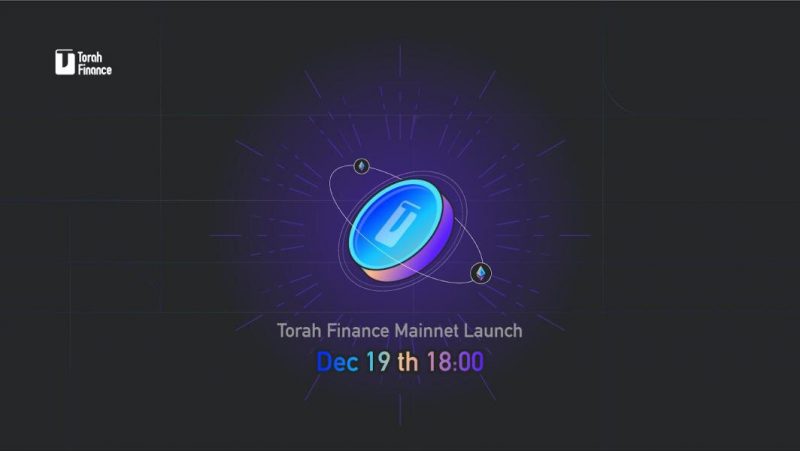2022 has been an eye-opening experience for the collective crypto industry. Major organizations that demonstrated strength and profitability in 2020-2021, faced massive setbacks that pushed certain associations toward bankruptcy. One of the major examples was FTX, the centralized exchange which faced a liquidity crisis and eventually collapsed. The incident highlighted issues with liquid funds, which re-opened the debate about whether decentralized exchanges are the better option.
Now, Torah Finance is creating a solution that will allow better control over digital assets while allowing users to be assured about their funds.
What is Torah Finance?
Torah Finance is an Ethereum-based decentralized exchange that allows users to trade ERC-20 tokens in a secure environment. The platform is aiming to provide good on-chain functionality, with low slippage, greater depth, and low transaction fees. It is a mixed liquidity pool trading model which will allow users to receive rewards when they provide liquidity. Torah finance charges a small transaction fee, of which 50% goes to Liquidity Providers and 20% to used to repurchase TRH, the other 30% is distributed by a proposal led by the Torah DAO.
The main objective of the Torah DAO token is to incentivize liquidity providers on the platform and get them involved in the governance of the protocol. $TRH is Torah’s token and users can trade, exchange and swap with $TRH. According to the protocol,
“Torah DAO’s rights are sole and exclusive. Thus users can either accelerate trading rewards or farming rewards in boost page or vote page. Community members can participate in DAO governance with Torah’s governing token veTRH.”
How will users access $TRH?
Users who provide liquidity will receive $TRH for their involvement. In this way, the protocol is able to offer low fees and minimal slippage. The asset can also be traded as a cryptocurrency. It can be locked to claim to $veTRH, which is a governance token. One of the main advantages of holding $TRH is the vote-locking boost. Over time, each user providing liquidity will be able to increase their daily TRH rewards by locking more $TRH.
$TRH Tokenomics
$TRH Finance protocol has a limit set at 1 billion TRH tokens which will not be exceeded in the future. In fact, the supply may undergo deflation depending on variable market structure. The purpose of issuing a governance token with veTRH is to make sure there is a difference between governance rights and voting rights, so that the protocol can establish a reasonable and fair governance solution.
Token Distribution
Yield Farming- 35%
Release Period: 4 years of distribution(20% reduction every 90 days)
Transaction Mining- 30%
4 years of distribution(20% reduction every 90 days)
Fundraising- 15%
12 months of distribution
Team- 15%
24 months of distribution
Community- 5%
One-time unlock
Torah Finance’s free TRH airdrops for $CRV and $UNI Holders
According to Torah’s recent announcement, its protocol token TRH has been officially launched in December 2022. Additionally, around 200 million TRH will be airdropped to $CRV and $UNI token holders.
How to register for Torah Finance Airdrops
- Enter Torah Finance website and click on their Airdrop section, then connect your wallet
- Ethereum wallets will need to hold $UNI or $CRV to be eligible for the current airdrop
- Next, users can click “Claim Airdrop”
- The total airdrop amount will be 2% of the total token amount, which will be added to the airdrop pools.
Over time, TRH token holders should be able to incur several advantages. Holding TRH tokens reduces users’ transaction fees and allows them transparent involvement in market-making. Furthermore, users who receive veTRH by staking TRH, will be eventually able to improve the staking rate of $TRH and the overall market value of $TRH will go up. The protocol is also working on stimulating BTC, ETH transactions, so that liquidity providers are able to gain more financial incentives and diminish losses.
For more information, please visit Torah Finance’s official website.
Twitter: https://twitter.com/TorahFinance
User’s Guide:https://torahdao.gitbook.io/torah-finance/
Technical Docs: https://github.com/torah-fi
Mirror:https://mirror.xyz/torahdao.eth
Governance forum: https://snapshot.org/#/torahdao.eth
Disclaimer: This is a Sponsored Post.





